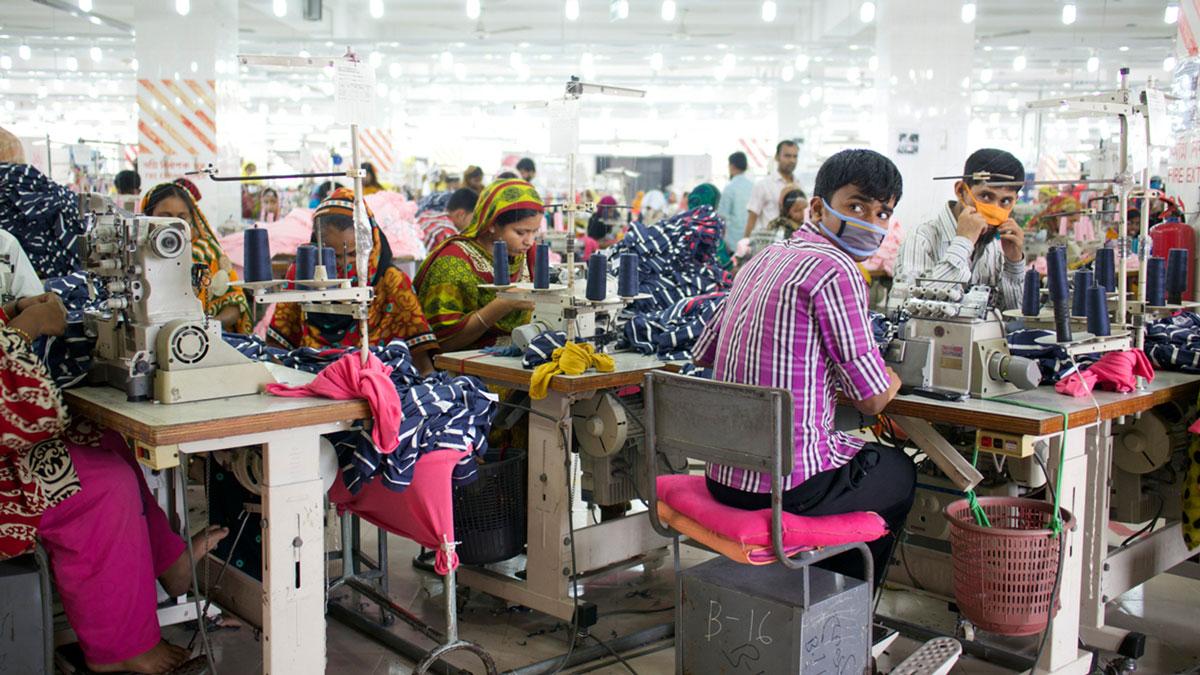Africa-Press – Mauritius. Recent events have again highlighted that there is an imperative need for a moral and ethical compass when holding public office. Without such a compass, there cannot be any legitimacy or right to hold public office.
Our democracy 50 years after independence is in bad shape. There are so many reasons to decry the present situation. For example, never before has the MBC TV been so feudalized and press ganged into such an appalling government propaganda machine.
Prime time TV news have lost public appeal because instead of focusing succinctly, as is the case for international news channels, on important local and international news, it almost daily broadcasts lengthy and tedious coverage of the activities, speeches and declarations of the prime minister. There are signs that this approach is backfiring.
The political landscape is basically unchanged from the post independence period with the same leaders, clans and dynasties still jousting for power with the same narrow mindset of concocting game plans to outplay each other instead of focusing their actions on the betterment of the country and the improvement of the standard of living of the people.
At a time when the country is clamouring for a new inspiring leadership and a new breed of altruistic politicians to innovatively realize our most ambitious objectives as a nation with everybody on board, the main political parties remain trapped in a time warp governed by the diktats and rule of the same omnipotent and disavowed leaders.
Instead of a continuous debate of ideas to promote the common good and boost the quality of life of people, the main party leaders remain bogged down in futile ego driven feuds.
The political class is yet to come to terms with the idea that in politics, there are no enemies but only opponents. Political hegemony over institutions and the key posts of the government Establishment has undermined the bulwarks of checks and balances which assure good governance.
The latest damning report of the National Audit Office yet again depicts a deplorable state of governance and highlights a long list of irresponsible waste of scarce public funds.
Is the country acquiring the trappings of a banana republic as opposed to being a vibrant democracy with a high standard of political ethics and democratic values?
There is also more and more evidence that those in power fail to identify the main issue in any given situation or deliberately choose for reasons of political expediency to distract attention from the core problem facing the country or a sector. The current questionable stances of government on the Alvaro Sobrinho affair or on the sugar sector are stark examples of this.
At a time when the government should have woken up to the scale of the widening and structural inequalities in the country highlighted in the World Bank report ‘Mauritius Addressing Inequality through More Equitable Labor Markets’ released last week, the Prime Minister chose instead to use prime time TV to extol the Baa1 rating maintained by Moody’s for Mauritius.
This is the more astounding as Mauritius has been benefitting from a Baa1 rating ‘for increasing economic diversification and resilience’ since at least June 2013.
This rating has since been maintained year in year out. To put it simply, this is nothing new. The surreality of failing to see the wood for the trees says it all.
Widening inequality is the real problem which must be urgently addressed. The World Bank report has put the spotlight on widening inequality in household incomes owing to limited shared prosperity.
Household income is deemed to be the most important contributor in the inequality in individual earnings. The report highlighted the disquieting fact that between 2001 and 2015, the gap between the incomes of the poorest and the richest 10 percent of households increased by 37%.
The Gini coefficient (which is a measure of inequality in the country) of household income increased from 0.37 in 2001 to 0.42 in 2015 i. e. by +16.4 percent.
It should also be recalled that in a country report entitled ‘Mauritius, Inclusiveness of Growth and Shared Prosperity’ released in February 2016, the World Bank had already warned that there is a real risk that part of the middle classes could slip into poverty.
It stated that ‘the rise in income inequality combined with lagging shared prosperity indicators have adverse impacts on relative poverty in Mauritius.
The incomes of the bottom 40 percentile of the population (the lower 40% income earners) had deteriorated in relative terms. ’ Again, no concrete action was taken to remedy the situation.
“Economists like Nobel Prize winner Joseph Stiglitz have demonstrated that economic growth does not bring increasing wealth and higher living standards to all sections of society.
The richer classes benefit but the prosperity generated does not trickle down to the rest owing to unfair distribution of the fruits of prosperity, thus causing a widening of inequalities.
Inequality is generated and grows because the owners of capital keep the lion’s share of the fruits of prosperity…” Such a scathing indictment of our own model of economic liberalism and the worsening state of inequality by the World Bank was met, despite all the pro-people rhetoric, by a deafening silence from both the government and the opposition parties.
The finality of every government policy and action must be the constant improvement of the quality of life and the well being of people. We do not need World Bank reports to gauge the widening and structural inequalities afflicting Mauritius.
It is only those who deliberately bury their heads in the sand who feign not to know the appalling statistical reality of income distribution in the country.
In the context of the minimum salary payment of Rs 9000, government announced this week that at least 120,000 employees would benefit from it. In 2016, some 166,800 employees of principally the private sector eked out a living out of earnings of up to Rs 10,000 per month.
Some 345,150 or 80.7% of the 427,700 employees in 2016 earned up to 25,000 per month whereas some 8500 or 2% of the employees earned a salary exceeding Rs 75,001 per month.
Mainstream Mauritius is being left behind by our model of development and an unequal sharing of the fruits of prosperity. The government has access to all the current statistics of the skewed income distribution in the country and can therefore take stock of the widening inequalities.
The upshot is that increasingly larger swathes of people are unable to meet their basic existential needs such as buying a house/flat or buying land to build a house.
The World Bank has pointed at limited shared prosperity as the main cause of the growing inequality in the country. Such a situation is untenable. It cannot be swept under the carpet.
Not to address it forthwith would be akin to sitting on a social powder keg on a short fuse. The government response cannot be limited to income support to the poor and social housing.
Government is therefore under the glare of public scrutiny as the people expect it to urgently take the necessary corrective actions to set things right. Cogent steps have to be taken to swiftly bridge inequality in the country.
Is the government so desperate to show economic results that it does not want to rock the boat? Are economic actors out of their depths to design innovative strategies to operate successfully in higher value added segments of a liberalized and more competitive international market environment? Already, the growth rate which was forecast ‘to rise further to 4.1 per cent in 2017/18’ in the 2017/18 budget speech has now been shaved to 3.9% by Statistics Mauritius.
Looking at the historical growth rates, we note that 4% has been an elusive growth rate since 2011. The growth rate has since fluctuated between 3.4 % and the estimated growth rate of 3.9% for 2018.
“In the context of the minimum salary payment of Rs 9000, government announced this week that at least 120,000 employees would benefit from it. In 2016, some 166,800 employees of principally the private sector eked out a living out of earnings of up to Rs 10,000 per month.
Some 345,150 or 80.7% of the 427,700 employees in 2016 earned up to 25,000 per month whereas some 8500 or 2% of the employees earned a salary exceeding Rs 75,001 per month. Mainstream Mauritius is being left behind…”
Economists like Nobel Prize winner Joseph Stiglitz have demonstrated that economic growth does not bring increasing wealth and higher living standards to all sections of society.
The richer classes benefit but the prosperity generated does not trickle down to the rest owing to unfair distribution of the fruits of prosperity, thus causing a widening of inequalities.
Inequality is generated and grows because the owners of capital keep the lion’s share of the fruits of prosperity. The yawning gap of inequality in the country epitomizes the fundamental flaws of our model of economic liberalism.
The success story of Mauritius has been built at the expense of widening inequalities. The development of the country cannot be at the expense of the interests of the multitude or the people.
This decried model of development is once again being championed by the government through its smart city schemes and generous business facilitation measures.
It will obviously cause even wider inequalities and hardships in the country. It is therefore high time to take the urgent actions required to reverse the trend forthwith. Not to do so is to stoke social revolt.
For More News And Analysis About Mauritius Follow Africa-Press







